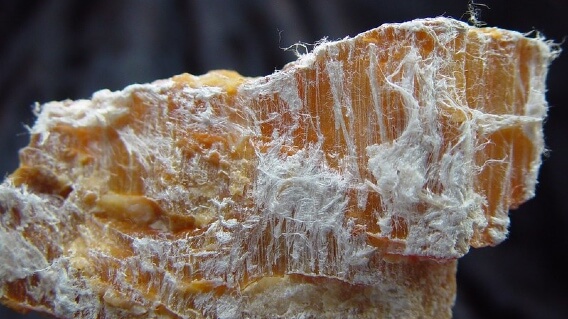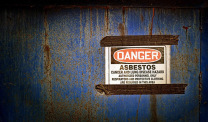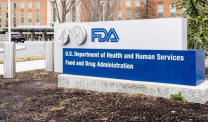Sudden Rise in Asbestos Imports as Ban Draws Closer
Asbestos Exposure & BansWritten by Tim Povtak | Edited By Walter Pacheco

Importation of raw chrysotile asbestos into the United States increased dramatically earlier this year, despite the growing movement toward tighter regulation and a potential future ban of the product.
The chloralkali industry — the only known user of raw asbestos today within the U.S. — imported an estimated 114 metric tons over the first three months of 2022, according to the United States International Trade Commission.
In all of 2021, by comparison, the industry imported only 100 metric tons, the smallest amount in more than half a century.
This sudden and dramatic rise in imports stems from a stockpiling philosophy, sparked by the U.S. Environmental Protection Agency proposing a future ban earlier this year under an amended Toxic Substances Control Act.
The proposed ban would include raw asbestos used by the chloralkali industry, in addition to vehicle friction products, brake blocks used in the oil industry, sheet gaskets, diaphragms and any other asbestos products also being imported today in unknown amounts.
EPA Tightening Regulations
In May, the EPA also proposed a new rule that would require much stricter record keeping and reporting of all uses of asbestos products and exposure-related information, which is not currently required.
Both EPA proposals are currently under review and receiving public comments. The potential ban of asbestos imports could be implemented as early as 2024.
A committee hearing in the U.S. Senate is scheduled for June 9 to discuss the unrelated Alan Reinstein Ban Asbestos Now Act of 2022, which was introduced May 18, 2022, by Oregon Senator Jeff Merkley.
Linda Reinstein, head of the Asbestos Disease Awareness Organization and one of America’s leading advocates, was invited to provide testimony at the hearing on Chemical Safety, Waste Management, Environmental Justice and Regulatory Oversight .
The bill, named for Reinstein’s late husband who died from mesothelioma cancer caused by asbestos exposure, has been introduced in Congress several times in previous years but has never passed.
This latest edition would prohibit the commercial use and importation of all asbestos types, going beyond the EPA’s proposal of only chrysotile.
It also would require the chloralkali plants still using asbestos to transition to non-asbestos technology within two years. The industry uses asbestos to manufacture fireproof diaphragms used in making chlorine.
The bill also would require mandatory reporting obligations and develop an outreach program to support full compliance.
According to most congressional accounts, the bill has only a very slim chance of passing as it is written today.
Asbestos No Longer Used Everywhere
The consumption of asbestos in the U.S. peaked in 1973, falling from a record high of 803,000 tons to less than 520 tons in each of the past five years.
Asbestos, a naturally-occurring mineral, was once used ubiquitously in the U.S. and coveted for its ability to fireproof and strengthen almost anything with which it was mixed.
Unfortunately, it’s also toxic, and can lead to a variety of serious health issues, including mesothelioma and lung cancer.
According to U.S. Geological Survey, Minerals Commodity Summaries, January of 2022, the estimated consumption in 2021 was 320 tons, much of it from stockpiled reserves.
The last U.S. producer of raw asbestos was closed in 2002, stemming from a decline in domestic markets due to increased regulation, along with health and liability issues.
The early 2022 asbestos imports were from China and Brazil, where asbestos is still being mined. It entered the U.S. at ports in New Orleans, Los Angeles, Houston and Galveston, Texas, and Norfolk, Virginia.






